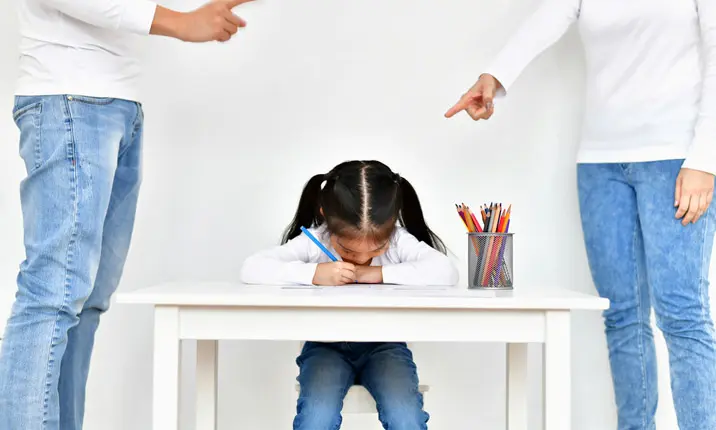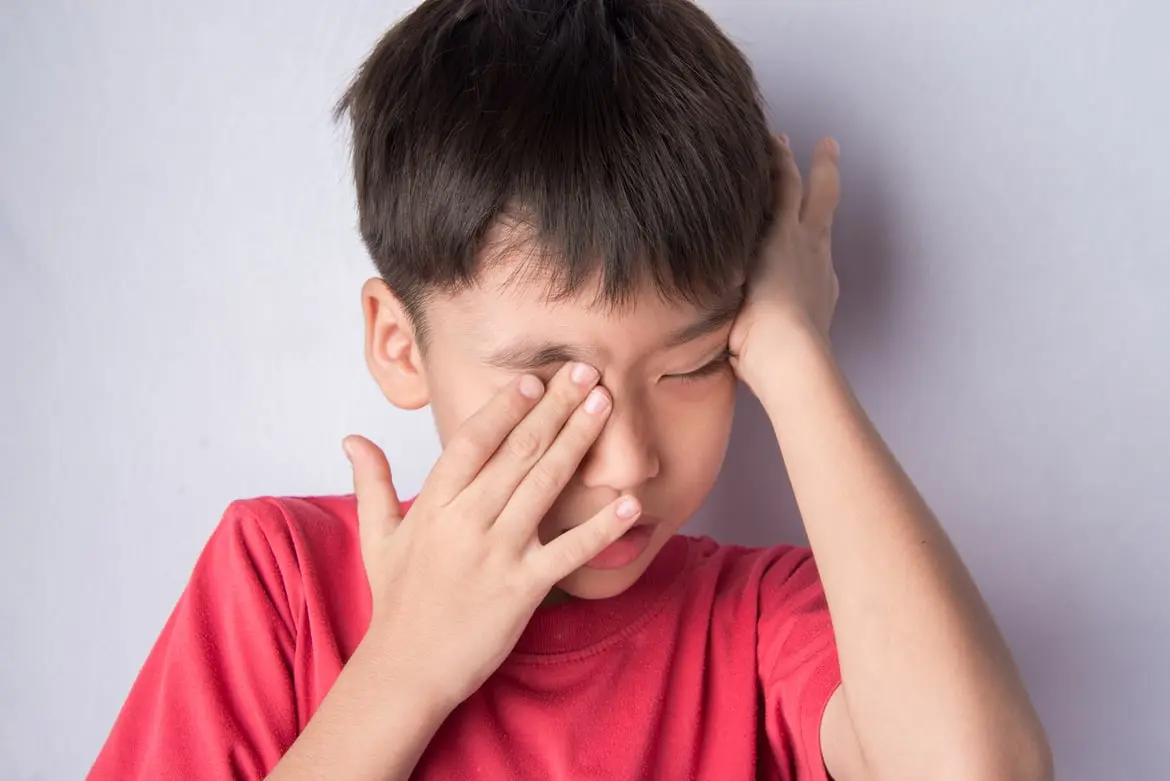What are considered child behavioural issues?
Your child's bad behaviour at home may be a problem if it doesn't line up with your family's expectations or if it interrupts your family's daily life and activities. However, what you deem as a problematic behavioural issue may just be normal behaviour in a child of that age.
"Good" behaviour is largely considered to be how a child should appropriately behave at their stage of development. Understanding what to expect from your child at each stage of development will help you decide whether or not their behaviour is normal.
Parents are often concerned with tantrums, emotional outbursts and violent behaviour in children.
Reasons for behavioural issues at home
1. Lifestyle changes
- Big, sudden changes in lifestyle or routine can be hard for your child to adapt to. Case on point: Being stuck at home day in and day out during while practising self-isolation. Children may behave badly when they are unable to cope with such changes.
2. Stress in parental figure
- Children are able to pick up on your emotions even if you do not verbally express them. If you feel upset – understandably in this time – your child might respond negatively and act out.
3. Change in parenting style
- Your child may be accustomed to how you interacted with them in the past. A change in how you treat your child may seem 'unfair' to them if you were lenient to a certain behaviour before, but now find it a problem. It takes time for children to understand and adapt.
4. Attention
- Tantrums are a way for children to get attention, even if it ends up in a scolding. They may act up because they desire your attention. Changes in behaviour may be a sign that you are neglecting their social or emotional needs.
How to handle difficult behaviour?
Addressing your child's difficult behaviour is key to changing it for the better. As a parent, you need to clearly tell them where the acceptable boundaries are and when they've crossed them. It is also important to help them differentiate between what's right and what's wrong from an early age.
Children learn by looking at what you, or the people around them, do. When you behave rationally and use healthy coping strategies, your child learns to do the same.
1. Reward good behaviour
To help your child understand what you want from them, reward them when they are behaving well. Rewards don't necessarily have to be in material form. Simple verbal affirmations such as "good job" or "I'm proud of you" in response to good behaviour can make a big difference.
Some parents make the mistake of only giving their children attention when they are behaving badly. Pointing out good behaviours and praising your children when they are doing something right helps to reinforce your expectations of them.
2. Discourage bad behaviour
You do not have to directly punish your children for them to understand that what they are doing is wrong. You can reduce bad behaviour by simply ignoring them when they act up.
However, this is only feasible if you are already giving them lots of attention when they behave well.
This method is called "planned ignoring". It involves not giving any verbal or non-verbal attention to your children when they act up. Once they stop behaving badly, immediately reward them with positive attention such as by saying, "Now that you are quiet, we can start playing again."
As parents, do not
1. Assume your children know what you're thinking
- Children aren't born knowing right from wrong; you have to teach them the difference. When they are uncertain of what to do in a situation, there is a higher chance that they will misbehave.
2. Make big life changes without warning
- Big lifestyle changes, like being stuck at home practising self-isolation, can be hard for children especially when they are happy with the routine they previously had. Giving your child a 'heads up' about lifestyle changes gives them the chance to process the changes and makes the transition less difficult.
3. Respond late
- Be immediate with your reactions. The more time that passes after an action is done, the less your child will associate your reaction with what they did. Delayed responses then seem like scolding for the sake of scolding and is less effective at correcting their behaviour.
4. Overreact
- Reacting disproportionately may disrupt their understanding of your expectations. An unfair punishment doesn't give them a clear understanding of your boundaries.
More than just being restless
If your child is not responsive to your attempts, and is problematic for seemingly no reason, consider the possibility that they may have an underlying medical condition such as Attention Deficit Hyperactivity Disorder (ADHD).
What is ADHD?
ADHD refers to a neurodevelopmental disorder that can affect your child's behaviour. The following are symptoms of ADHD, and may be difficult to differentiate from normal bad behaviour, making it hard to diagnose.
Symptoms of ADHD
1. 'Selfish' behaviour
- A typical symptom of ADHD is being unable to recognise other people's wants and needs. This can lead to the child interrupting others or entering conversations they're not a part of. They also tend to have trouble waiting for their turn in games.
2. Emotional outbursts
- ADHD in children may present in outbursts of anger at inappropriate times. Children with this condition often have trouble controlling their emotions.
3. Fidgeting
- Children with ADHD often can't stay still for even short periods of time. They feel the need to be doing something at every moment and find it difficult to play quietly on their own.
4. Inability to focus
- Children with ADHD may have a hard time focusing even when someone is directly speaking to them.
- Another sign of ADHD is being more reserved and less involved in the house than other children. A child with ADHD may daydream and ignore their surroundings completely.
5. Symptoms in multiple settings
- A sign of ADHD is when they exhibit similar behaviour despite being in different environments. For example, if they are fidgety both in school and at home, this may be indicative of ADHD.
When to see a paediatrician?
All children may behave badly, especially when faced with changes to their routine or home environment. It is part of the normal learning process in child development.
However, consider consulting a paediatrician if your child:
- regularly displays signs of ADHD,
- is not doing well in school, and
- has a hard time making friends
ADHD can be managed with the right treatment. If your child is diagnosed with this condition, take the time to review all of the options available to help them cope with their daily life.














